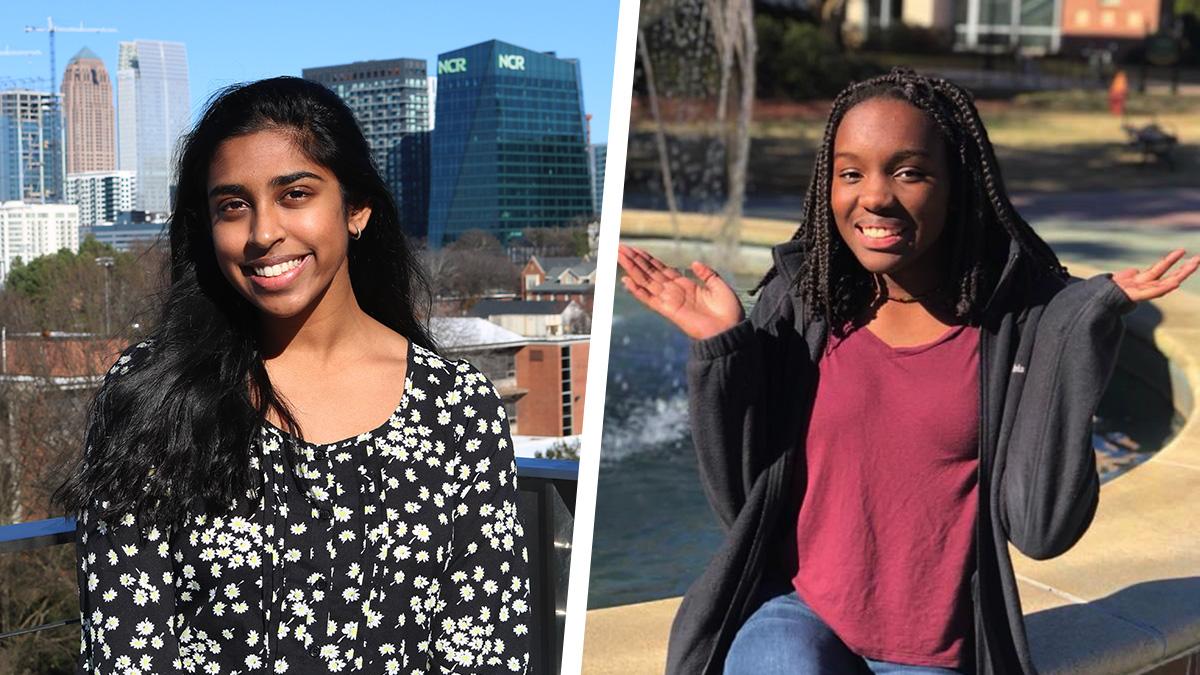Two Wallace H. Coulter Department of Biomedical Engineering students have earned scholarships for engaging in undergraduate research combining biomedical engineering and computing.
Samantha Mutiti has been working on neural networks for assistive robotics in Charlie Kemp’s lab. Neha Badam has been supporting work on T cell therapies and synthetic biomarkers in Gabe Kwong’s lab. They’ve each won a Stephen E. Brossette Scholarship, which specifically supports students working at the interface of computing and BME.
“This scholarship will be a great opportunity for me to further my research goals,” said Mutiti, who is entering her fourth year of studies. “I am very interested in pursuing a master’s and/or a Ph.D., so this will be a great stepping stone for me to start working toward that next step in my research career.”
Badam, too, said the scholarship will help her pursue further studies.
“The interface between BME and computer science has always interested me, and I believe that much innovation will come from combining these fields. I am curious to see how these fields will continue to advance together as I begin my professional career,” said Badam, who just finished her bachelor’s with a minor in computing and intelligence and is preparing to start a two-year engineering rotational program at Danaher, a global life sciences, diagnostics, and environmental solutions company.
In addition to her work in Kwong’s Laboratory for Synthetic Immunity, Badam has been involved in a research project extending her work from BMED 2310, Intro to Biomedical Engineering Design. She participated in the Idea to Prototype program through CREATE-X with a custom drill to simultaneously screw or unscrew caps on a rack of test tubes. Her team’s project was a partnership with Georgia Tech’s asymptomatic Covid-19 testing lab to optimize their processes.
Mutiti is working with Kemp’s Healthcare Robotics Lab to help assistive robots with patients lying on a bed and covered with a blanket. That has involved work with neural networks using data from a depth camera to estimate the pose of the body on the bed and feeding the data to a robot so that it can find the right target on a person’s body.
“I’m so grateful and excited for this honor,” Mutiti said. “I really enjoy the research I’ve been doing, so it was such great news to hear I have received a scholarship for the work I’ve enjoyed over the last year.”
Latest BME News
Jo honored for his impact on science and mentorship
The department rises to the top in biomedical engineering programs for undergraduate education.
Commercialization program in Coulter BME announces project teams who will receive support to get their research to market.
Courses in the Wallace H. Coulter Department of Biomedical Engineering are being reformatted to incorporate AI and machine learning so students are prepared for a data-driven biotech sector.
Influenced by her mother's journey in engineering, Sriya Surapaneni hopes to inspire other young women in the field.
Coulter BME Professor Earns Tenure, Eyes Future of Innovation in Health and Medicine
The grant will fund the development of cutting-edge technology that could detect colorectal cancer through a simple breath test
The surgical support device landed Coulter BME its 4th consecutive win for the College of Engineering competition.








